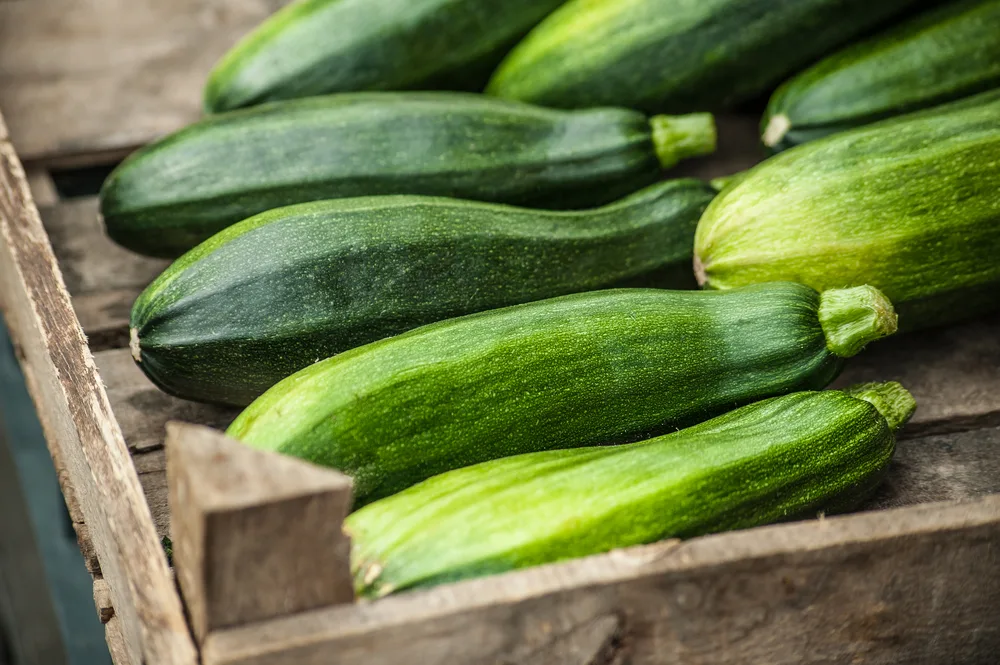Table of Contents
The Mediterranean diet has become a highly popular diet. It’s based on the traditional lifestyles and eating habits of cultures around the Mediterranean Sea. These population groups tend to live longer and suffer less from chronic disease. This has inspired people to take up a Mediterranean-style diet and lifestyle. Typically, it focuses on vegetables, whole grains, and healthy fats like extra virgin olive oil.
There’s much more to know, so join us as we embark on a Mediterranean adventure.
What is the Mediterranean diet?
The Mediterranean dietary pattern is based on traditional eating habits and cuisines from Greece, Italy, Southern Spain, and other Mediterranean regions.
Multiple studies found that populations around the Mediterranean Sea basin had lower rates of cardiovascular and metabolic diseases. Hence, the term Mediterranean diet was coined.
A traditional Mediterranean diet is essentially a plant-based diet that emphasizes healthy fats like olive oil and omega-3 fatty acids. At the same time, the diet is low on sugar, dairy, and high-processed foods but does include a moderate amount of red wine.
What’s all the fuss about?
The Mediterranean diet is popular due to its many proven health benefits. These include a lower risk of heart disease, cancer and slower development of brain disorders like Alzheimer’s disease (1).
What’s more, the diet itself is very flexible. It can easily adjust to food allergies, various dietary needs, or even regional food variations.
Health benefits of a Mediterranean-style diet
The Mediterranean diet is widely associated with both physical and mental health benefits. It’s a well-studied diet backed by numerous research findings.
Benefits the heart
Evidence of a healthy diet and lifestyle is a low risk of heart disease and stroke. The Mediterranean diet ranks as one of the best eating patterns for preventing cardiovascular disease (2).
A key reason is a greater intake of unsaturated fats compared to trans and saturated fats.
Unsaturated fats lower bad cholesterol and improve blood pressure (3, 4). Moreover, omega 3 and omega 6 lipids found in fatty fish, along with polyphenol antioxidants in the fruit, vegetable, and grain content, also play a role in better heart health (5).
Protects against diabetes
Diabetes is also a major preventable lifestyle disease. In several studies, the Mediterranean diet was shown to reduce the risk of diabetes by up to 52% (6).
Research into a Mediterranean diet supplemented with extra virgin olive oil showed positive results for preventing diabetes (7). Additionally, polyphenols in extra virgin olive oil help reduce carbohydrate absorption, thereby decreasing blood sugar levels (8).
Another key food choice is whole grains. These also help to decrease the risk of type 2 diabetes by reducing both blood glucose levels and insulin resistance (9).
Vegetables and fresh fruit, high in antioxidants and fiber, also enhance insulin sensitivity (10, 11). Nuts and seeds do much the same. They also decrease oxidative stress (12).
Helps prevent cancer
The nutrient profile of the Mediterranean diet is linked to certain types of cancer prevention. These include brain and neck cancer, inhibiting leukemia, as well as preventing blood clots (13, 14, 15).
Nutrients such as vitamins C and E, omega 3 and 6 fatty acids, and polyphenols, together with fiber, are plentiful in the Mediterranean diet. These have a high-antioxidant effect which is key to cancer prevention and fighting inflammation (16, 17).
Boosts brain function
Some studies have already proven that a Mediterranean-style diet can lower the risk of Alzheimer’s disease. The diet also helps with memory impairment and dementia (18, 19).
Balances gut microbiota
It’s increasingly understood that gut microbiota is key to overall good health (20). The foods we eat can critically affect our gut microbiota balance.
The Mediterranean diet favors Bifidobacterium and Lactobacillus bacteria, which contribute to better immune response. This may be related to the dietary polyphenols (21).
In addition, the high fiber content and omega-3 fatty acids also boost Actinobacteria bacteria. This has powerful probiotic and anti-inflammatory effects
(22).
As beneficial microbiota increase, the number of potentially pathogenic bacteria such as Fusobacterium decreases (23). It’s possible that the low-fat content of the Mediterranean diet plays a role (24).
Supports mental health
A proper diet is one of the easiest ways to improve or maintain mental health. Recent research shows a positive relationship between the Mediterranean diet and a lower risk of depression (25, 26).
Assists weight loss
The Mediterranean diet has gained a reputation as a healthy diet model. This is especially so for weight management and noticeable weight loss (27, 28).
Plenty of fiber and water enhance the feeling of fullness, together with a lower calorie intake helps with weight loss (29). Other than that, unsaturated fatty acids, like olive oil, nuts, and fish, are thought to help burn fat and calories and increase metabolism (30).
The Mediterranean diet pyramid guide
The idea of a food pyramid as an eating guide has been around for a long time. It gives a useful pictorial glimpse of what foods to eat and in what quantity. There have been updates to the traditional Mediterranean food pyramid, but here are the key highlights.
1. Eat more plant-based foods
Plant-based foods such as vegetables, fresh fruit, and cereals are core to the Mediterranean diet. They are essential for preventing chronic lifestyle diseases and for weight management (31, 32, 33, 34)
At least two servings of vegetables a day, one taken raw, are recommended (35). Fruit should consist of one to two servings per meal (35).
Cereals such as bread, pasta, rice, and others are best eaten as whole grains. One to two servings per meal are the recommendation (36).
A useful tip is to eat a variety of colorful fruits, vegetables, and different grains to ensure a wide range of micronutrients and phytochemicals.
2. Eat fish and poultry in moderation
Animal-source protein in a traditional Mediterranean diet is only eaten in moderation. Two or more servings per week of fish, shellfish, and other seafood is good. Poultry can be two servings per week, and eggs from two to four (35).
Fish, especially Mediterranean varieties like sardine and mackerel, are rich in omega-3 fatty acids. Poultry and eggs provide lean protein without the saturated fats found in red meats (35).
Red meats, and preferably lean cuts, are limited to less than two servings per week.
Processed meats should be no more than one serving per week. Due to the saturated fat, heme iron, and sodium content, these meats are linked to a higher risk of cancer and heart disease (37).
3. Eat dairy in moderation
In the Mediterranean diet, milk and dairy products should only be consumed in moderation. This means no more than two servings per day (35). The best dairy products are yogurt, cheese, and other fermented dairy—preferably low-fat.
Dairy products are beneficial for bone and muscle health, being rich in protein, calcium, and micronutrients (38). Furthermore, fermented dairy is a key source of probiotics, which can positively impact gut microbiota and digestion (38).
4. Choose healthy fats
Fat is not necessarily bad; it just needs to come from the right sources. Olives, nuts, and seeds are great sources of unsaturated healthy fats. These can help lower ‘bad’ LDL cholesterol in the blood (39).
These fat sources also contain antioxidants, fiber, vitamins, and minerals. All of these are notes for improved heart health and reduced blood cholesterol
Olives, nuts, and seeds can be had in moderation or one to two servings per day (35). You can just eat these as a healthy snack, especially if unsalted or with very little.
5. Use extra virgin olive oil
The main source of dietary fat in the Mediterranean diet should be olive oil. Extra virgin olive oil is preferred because of its higher polyphenol and oleic acid content (42).
Besides added nutritional value, extra virgin olive oil can withstand higher temperatures than other types of olive oil. Extra virgin olive oil can be consumed in two to four tablespoons per day (35).
6. Flavor with herbs and spices
Herbs, spices, garlic, and onions are an integral part of a traditional Mediterranean diet. They add flavor, thereby reducing the need for salt. Salt is often noted as a risk factor for increased blood pressure (43).
Herbs and spices do more than add unique flavor to the food. They are abundant in antioxidants such as flavonoids, isoflavones, and anthocyanins (46). These reduce inflammation, increase insulin sensitivity, and protect the brain from oxidative stress (47).
7. Water and red wine
The Mediterranean diet generally recommends 1.5 to 2 liters of water and unsweetened beverages per day (35).
Water requirements may differ according to physical activity, age, and personal health conditions. It is vital for many bodily functions, including metabolism and maintenance of cell balance (48).
The only alcoholic beverage recommended is red wine. One glass per day for women and two glasses for men together with a main meal is fine, although you can skip this (35).
Red wine is a rich source of polyphenols, organic acids, minerals, and vitamins that counteract free radicals and oxidative stress (49). Health benefits are numerous such as improved heart and brain health, cholesterol levels, blood pressure, and insulin sensitivity (50, 51, 52, 53).
Living a Mediterranean lifestyle
The Mediterranean diet is not just about specific types of foods; it’s also a way of life. There are some important cultural lifestyle elements that need to be incorporated for the full benefit of the diet.
Regular physical activity at moderate-intensity levels is highly recommended. This means at least 150 minutes of exercise per week, including muscle-strengthening activities at least twice a week (35).
Exercise helps to balance energy intake and helps lower blood glucose and blood cholesterol levels (54).
Another lifestyle component is social and cultural interactivity, such as sharing meals and communal activities. This benefits mental health and reduces stress levels (35).
Lastly, a good night’s sleep, and rest during the day, are also part of a well-balanced lifestyle. It is as important as moving at a slower pace and minimizing stress. This way of living promotes better health with a lower risk of cardiovascular disease (55).
A quick and easy Mediterranean diet guide
The Mediterranean diet isn’t a set of strict rules. It’s more about a lifestyle that supports a traditional way of eating. Here are some tips to start off your Mediterranean journey:
- Build your meals around vegetables and legumes instead of meat. A good place to start is to go vegetarian one day a week.
- Make a meal calendar for each week or even the month ahead. This way, you can shop for new foods you’ll need.
- When dining out, try to pick fish or seafood as the main dish and ask if it can be cooked with olive oil.
- Make desserts other than fruit a special occasion and stick to the basic wine serving.
- Frozen and canned foods are acceptable if certain ingredients are not in season.
Here are alternative foods for people with allergies or special dietary needs:
- To avoid gluten-heavy foods, opt for brown rice, quinoa, and buckwheat.
- A good alternative to dairy milk is soy or almond milk.
- For fish allergies, Tempe and tofu are rich in protein.
- Dried chickpeas can be a good alternative to nuts and seeds.
Mediterranean-style shopping list
The Mediterranean diet is very flexible in the sense that ingredients can be switched around to cater to personal needs or geographic locations.
Here is a list of key foods from each recommended group:
- Vegetables – tomatoes, broccoli, kale, spinach, onions, cauliflower, carrots, Brussels sprouts, cucumbers, potatoes.
- Fruits – apples, bananas, oranges.
- Whole grains – bread, brown rice, oats.
- Legumes and beans – peas, beans, lentils, chickpeas.
- Nuts and seeds – almond, cashew, chestnut, hazelnut.
- Fish and seafood – tuna, salmon, herring, sardines.
- Poultry – chicken, duck, goat.
- Dairy and eggs – yogurt, milk, cheese, chicken egg, quail egg, duck egg.
- Herbs and spices – basil, bay leaf, black pepper, cloves, coriander, cumin, garlic, oregano, parsley, paprika.
- Healthy fats – olive oil, canola oil, fish oil.
- Beverages – red wine, water, coffee, tea.
Mediterranean diet meal plan
The Mediterranean diet always starts off with a well-balanced breakfast followed up by a heavier midday meal. A lighter meal is enjoyed in the evening before resting. This is an example of what to expect from a Mediterranean diet:
A balanced breakfast to start off the day:
- Yogurt with fruits.
- Oatmeal with berries and nuts.
- Eggs with vegetables.
Your biggest meal of the day, lunch:
- Salad with vegetables, nuts, cheese, and tzatziki or seasoned yogurt sauce.
- Wraps with chicken breast, vegetables, and hummus.
- Bean soup with bread.
Dinner will mostly look like lunch:
- Fish served with beans, nuts, and vegetables.
- Grilled chicken with vegetables and tzatziki sauce.
- Grilled salmon with sauteed vegetables.
The foods to avoid and why
At closer inspection, the Mediterranean diet pyramid does include a few less healthy foods high in sugar and unhealthy fats. You should consume these sparingly and reserve them for special occasions.
Processed foods
Processed or non-whole foods tend to be high in things like salt, sugar, trans and saturated fat (56). They lack fiber and micronutrients, are high in calories, and are less filling (56).
Processed foods are linked to an increased risk of cardiovascular diseases, brain disease, stroke, and depression (57).
Examples are pre-packaged frozen meals, fast foods, breakfast cereals with additives, and reconstituted meat products. Also included are instant noodles, savory snacks, soft drinks, and other sweetened beverages (57).
Refined grains
The problem with refined grains is their higher glycemic index (58). This increases the risk of metabolic syndrome, type 2 diabetes, colon cancer, and high blood cholesterol (59, 60). Refined grains also have less fiber, vitamins, minerals, and other important nutrients (61).
It appears, however, that these risks are more likely when the serving exceeds energy needs or when total carbohydrates exceed 60% of energy intake (62).
Some examples of refined grains include white flour, white rice, pasta, cornflakes, and all products containing these.
Foods with added sugars
Prepared foods with added sugar include those with syrups and other caloric sweeteners (63). Common types are packaged desserts, home bakes, and sweetened beverages.
Some studies have linked overconsumption of added sugars to a greater risk of obesity, cardiovascular diseases, diabetes, liver disease, cancer, and high blood pressure (64, 65, 66).
Saturated and trans fats
Saturated fat and trans fat are more likely to clog arteries and raise blood cholesterol levels. This, of course, increases the risk of heart disease but also diabetes, dementia, and Alzheimer’s disease (67, 68, 69).
Foods with excessive amounts of these unhealthy fats are typically fast foods, potato chips, cookies, and other sweets. It can also include pastries, red meat, and dairy products (70). It is better to limit the intake of these foods and follow the recommended servings.
Risk factors and health concerns
Before switching to a Mediterranean diet, there are several things to know:
Might lower kidney function: The Mediterranean contains more potassium than the typical Western diet (65). This may create difficulty for chronic kidney disease patients needing to limit their potassium intake (65, 66, 19).
Might trigger allergies: Certain recommended foods can trigger an allergic reaction. This includes milk and dairy products, eggs, wheat, soy, peanuts, fish, and other seafood (35).
Isn’t gluten-free: Whole grains, including wheat, rye, and barley, are recommended. Therefore, people with celiac disease need to find gluten-free alternatives.
Concerns for diabetics: People with diabetes should modify their meal plan to prioritize low glycemic index foods and control carbohydrate intake.
Comparison to similar diets
The Mediterranean diet is frequently compared to other popular diets. Three similar dietary patterns are the flexitarian diet, the ketogenic diet, and the DASH diet.
Flexitarian diet
The Flexitarian diet mainly follows a vegetarian diet but with the occasional addition of meat or fish. Therefore, there’s a similar focus on whole grains and moderate meat consumption.
However, the flexitarian diet is more concerned about ethics and animal welfare (69). As such, there is no clear nutritional guide on the meat intake. It can vary from three days a week to once or twice a week and more than once per month (70, 71).
For the same reason, there is no clear guideline about preparation and specific fat consumption. This is different from the Mediterranean diet, which avoids fried foods and limits unsaturated fats (72).
Keto diet
The Ketogenic diet, also known as the keto diet, is a high-fat, low-carb diet. The main goal is to trigger nutritional ketosis to burn fat as an energy source instead of glucose (73).
Compared to the Mediterranean diet, food choices in the keto diet are more restrictive. Both diets limit sugar and refined grains (74).
However, the ketogenic diet suggests avoiding legumes, fruits, and whole grains, while the Mediterranean diet includes them (74). Moreover, the Mediterranean diet focuses on unsaturated healthy fat, but keto doesn’t limit long-chain saturated fat.
DASH diet
DASH means the Dietary Approach to Stop Hypertension. This diet was created to reduce the risk of obesity, type 2 diabetes, and cardiovascular disease. It also specifically targets hypertension (75, 76).
The DASH diet similarly recommends a variety of vegetables, fruits, low-fat dairy products, whole grains, poultry, fish, and nuts. It also limits the intake of red meat, sweets, and sugary beverages (75).
However, unlike the Mediterranean diet, which encourages healthy fats, DASH focuses on reducing the total intake of fats (75). The DASH diet also emphasizes reduced sodium or salt, while the Mediterranean diet isn’t specific about this (77).
How to get started on the Mediterranean diet?
To start a Mediterranean diet, try to incorporate more seafood into your meals. Avoid sweets, and replace butter with olive oil. It’s okay to use frozen and canned foods when fresh foods are limited.
What foods are not allowed on the Mediterranean diet?
Foods that are severely limited in the Mediterranean diet are red meat, sugary drinks, butter, sweets, and whole-fat dairy. Home-baked sweets are reserved more for special occasions.
What are the main foods in the Mediterranean diet?
The Mediterranean diet centers around vegetables, legumes, fruits, whole grains, nuts, seeds, and herbs. Fish, poultry, and dairy products can be consumed in moderation as part of the dietary pattern.
Can you lose weight on the Mediterranean diet?
There are numerous research studies to show that the Mediterranean diet can help with weight management and lower the risk of obesity. There are many individual factors involved, so losing weight cannot always be guaranteed.
Is the Mediterranean diet safe for everyone?
The Mediterranean diet is a well-balanced, healthy, and traditional way of eating. There are no specific adverse effects, but people with certain allergies need to make adjustments.
Can children follow the Mediterranean diet?
The Mediterranean diet is safe for children since it is based on healthy foods and is a well-balanced traditional way of eating. It is also very flexible, so it can accommodate simple recipes for children to enjoy.
Summary
The Mediterranean diet has become a top choice for people wanting to lose weight or adopt a healthier lifestyle. It’s a type of plant-based diet that focuses on whole foods with a limited intake of lean proteins, dairy, and healthy fats. Sugar consumption and processed foods are discouraged, and salt is reduced by using fresh herbs and spices. Since the diet is based on the traditional lifestyles of Mediterranean people, it is highly effective at combating modern lifestyle diseases and improving psychological well-being.

















Comments
0